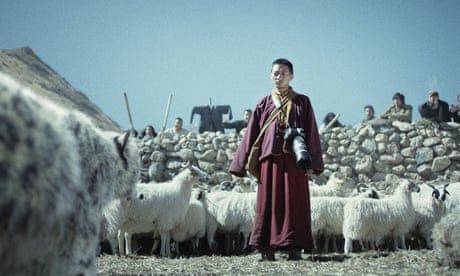
Pema Tseden’s swan song about the fate of a snow leopard imprisoned by a vengeful farmer gains new layers of political meaning following the director’s death
Tibetan film-maker Pema Tseden died of heart failure last year at the age of 53, just months after completing this movie; his health was almost certainly weakened by rough treatment from Chinese police in a notorious 2016 incident at an airport where he was prevented from retrieving his luggage, and the ensuing row escalated when police officers became involved and Tseden ended up in hospital. This ugly and possibly tragic event must surely have influenced Tseden’s final film, which mixes satirical comedy and social commentary and an enigmatic Zen reverie of innocence and experience. The fact that Tseden did die also alters the film’s meaning.
A TV crew is seen making its way in a four-wheel drive across the vast Tibetan plateau to where a monk has told them a furious farmer is keeping a snow leopard – a nationally protected animal – illegally penned up, and intending to kill it in revenge for killing nine of his lambs. The monk is riding along with the crew; he is nicknamed “Snow Leopard” because he himself was radicalised into his vocation as a young man by rescuing another snow leopard – or, who knows, perhaps this very same one – from his farming family who had strung the animal up, intending to whip it to death.
Continue reading...